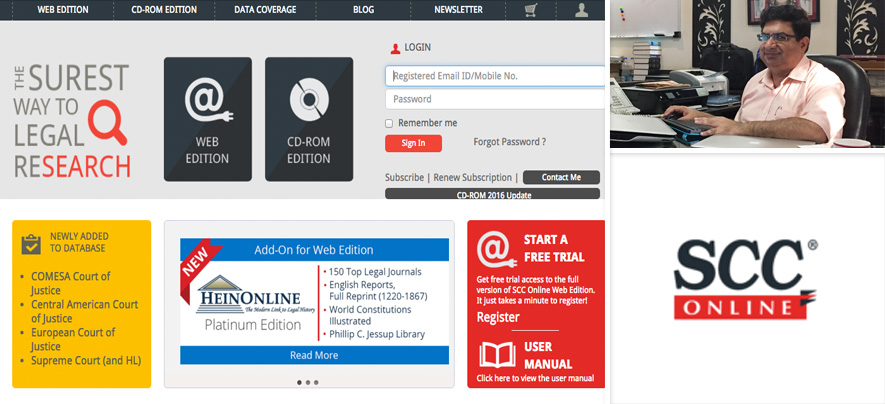To Remain Relevant, A Company Must Maintain 3 Mindsets: Start-up, Consolidation, Expansion

SME Inspirations
503 week ago — 9 min read
What do you do when you’re part of a family-owned and run business that’s been around for nearly 75 years, the leading enterprise in its field, catering to a demand that will never die?
Sure, you can and should be proud of the company. But you must also think hard and keep thinking hard. Because being successful can sometimes lead to complacency and therefore stagnation. After all, if there is nothing left to be achieved, what is there to strive for? So how – and more important – where do you take the business forward?
That’s a thought that’s very much on his family’s mind, says Sumeet Malik, director of EBC Publishing Pvt Ltd, a Lucknow-based enterprise that was set up by his grandfather and great uncle in 1942, specialising in the law book trade.
The Malik family, all of whom are involved in the company, are certainly proud of what the enterprise has achieved since its first days as law books sellers to its current avatar as India’s leading publisher of law books(including Supreme Court Cases, a law report which publishes all the judgments decided by the Supreme Court on a weekly basis and is referenced and cited by all the judges and lawyers in the country), CD Roms and a superb reference web portal – SCC Online– for lawyers all over India.
But as new generations of Maliks enter the business, they are always thinking: what next? And that, says Sumeet Malik, is what will keep EBC at the top in its field.
Mr Malik spoke to GlobalLinker (GL) about his business and also shared his thoughts regarding the digital start-up culture that is now so prevalent in the country.
Excerpts from the interview.
GL: Please tell us how EBC Publishing Pvt Ltd began.
Sumeet Malik (SM): It started as a partnership called Eastern Books Company between my grandfather and his older brother in 1942 in Lucknow. Though my family came from an area of Punjab that is now in Pakistan, they moved to Lucknow before Partition to set up their law books trade because in pre-Independence North India, Allahabad, Lucknow, Lahore, Calcutta and Patna were where the biggest courts were situated.
They entered the publishing field in 1950 with a commentary on the Constitution of India, which had just been finalised, authored by VN Shukla, a professor of the University of Lucknow. The commentary is now in its 13th edition, and is known simply as VN Shukla’s Constitution of India!
My father studied law at the University of Delhi and at Columbia University, New York, and in 1969, he established the Supreme Court Cases, a weekly law report that publishes all the judgments of the Supreme Court, and which has tremendous reference and archival value, as you can imagine. It is still being published and is one of the first sources of reference material for lawyers and judges all over India.
In 1986, the partnership became a private limited company called EBC Publishing , and in 1996, when we realised that lawyers may not have the space to store all the reference material they require, we launched CD Roms with all our material. Then, in 2010, we launched a web portal called SCC Online, providing everything a lawyer might need for research, including not only all the Supreme Court judgments, but also judgments from all courts and tribunals in India, material relating to acts, rules and regulations and even legal material from the countries of the Commonwealth that might provide lawyers in India with ideas.
GL: So keeping up with technology is important to you then?
SM: Yes, it is. In fact, we have recently moved to e-books. When technology and apps are the way people access information these days, we need to provide the information we deal in accordingly.
GL: You said your father qualified in law from the University of Delhi and Columbia University, New York. Are qualifications necessary in a family-owned and run business? As part of a business family, don’t you simply pick up elements of the business as you grow up?
SM: Qualifications are essential. I myself studied law at the National Law School of India in Bangalore, and did my Masters in Law from Franklin Pierce (now University of New Hampshire) in the US, where I specialised in Intellectual Property. I then worked with the constitutional expert and Supreme Court Senior Advocate, Mr KK Venugopal, for nine months, and then I joined EBC.
All the senior management at EBC are family members and we are all qualified, some of us in law (Columbia, Franklin Pierce, Cambridge and U Toronto), and the others in business management (FMS, IIM C and NUS). This is a good blend. Those of us who qualified in law understand the needs of the community, and the content that they require. And those of us who qualified in business management take care of the business, finance, marketing and so on.
GL: There has been some doubt in the media about the efficacy and sustainability of family-owned firms. What do you think of this?
SM: (Laughs) A recent article in the Economist showed that 2/3rds of the world’s businesses are owned by families. That includes Porsche! There is a lot of value in family-owned businesses. For instance, there is always a long term view. Corporations may sometimes be bogged down by quarterly results, but family-owned companies can look ahead for years.
GL: What do you think of the new wave of VC-funded start-ups in the country?
SM: I doubt if many of them will survive. Sometimes I wonder whether these businesses make money. The VC (venture capitalist) certainly wants to make money, but for the companies, where will the money come from? At the moment, these companies are surviving only on valuations and buy-outs.
GL: When must a company get out of the start-up mindset and get into the consolidation mindset?
SM: Actually, for a company to remain relevant, it must maintain all three mindsets – start-up, consolidation and expansion. Let me explain.
Look at EBC. We have been around for more than 70 years. We started as booksellers. Then publishing became our first start-up (beginning with VN Shukla’s Constitution of India). Book publishing was consolidated over the next 15-20 years. Then my father set up the law report in 1969. That was EBC’s second start-up. Over the next 30 years, the law report was consolidated and established as reliable. And then in 1996, we launched the third start-up – the CD Roms. That was quite a time. Very few people had computers then, so our sales people had to carry computers with them to demonstrate the CD Roms. Sometimes they had to sell the computers too. Sometimes they sold CD Roms to people who didn’t have computers.
Then, in 2010, we launched our fourth start-up, the web portal called www.scconline.com. Now that is in the consolidation stage.
GL: How do you decide how and in what direction to grow?
SM: We just keep meeting and discussing projects. The business is now being run by the second and third generation of the family, including myself, who entered it around 2001. We came in with new ideas. Now the youngest of the third generation of the family are entering the business, and they have new ideas of their own. This is good because for a company to survive and succeed, there has to be a combination of experience and ideas.
GL: Finally, would you like to see EBC become a large corporation someday, or would you prefer it to remain in the SME sector?
SM: Oh yes, I would love to see EBC as a large corporation. Because even if it will be no longer run by the family, it can still be family-controlled.
Sumeet Malik is one of the many business owners to access the big business advantage on GlobalLinker. Because there are no small and medium dreams.
Disclaimer: This article is based solely on the inputs shared by the featured member. GlobalLinker does not necessarily endorse the views, opinions & facts stated by the member.
Posted by
GlobalLinker StaffWe are a team of experienced industry professionals committed to sharing our knowledge and skills with small & medium enterprises.
View GlobalLinker 's profile
Most read this week










Comments
Share this content
Please login or Register to join the discussion